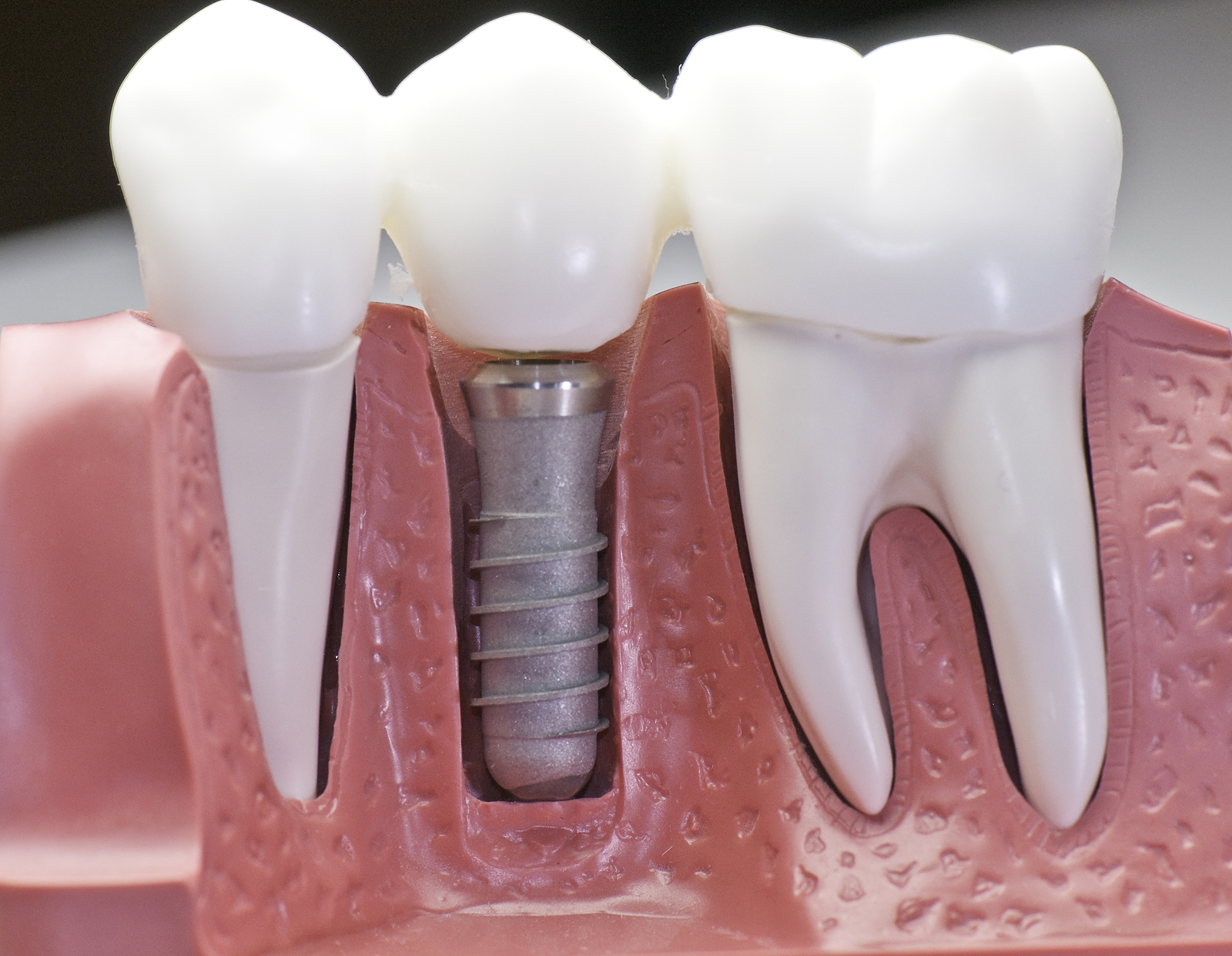Will a Dental Implant Look and Function Like a Natural Tooth?
Posted by Phoenix Family Dentistry
Dental Procedure
on Aug 9 2018, 10:06 AM
A dental implant is an artificial tooth root, and it functions exactly like the root of a natural tooth. For starters this small, biocompatible rod embeds in the jawbone, providing support for a dental restoration or prosthetic. Implants are versatile in their uses, and they make it possible for dentists to correct a range of cosmetic and oral health issues.
Installing a dental implant, in a nutshell
The process of getting implant-supported prosthetics unfolds over several months. Central to this process is dental implant surgery, the procedure where a dentist installs one or more dental implants in the jawbone. From start to end, the treatment plan involves some or all of the following steps:
- Evaluation, diagnosis and the crafting of a custom treatment plan
- Where necessary, bone graft surgery or a sinus lift
- Dental implant surgery
- The attachment of an abutment
- Loading of the implant with a crown, bridge, or dentures
Each of these steps is a session in the dentist’s chair. The bone graft and dental implant surgeries are procedures that require months of recovery time to allow for the healing of bone. Installing the abutment is a less invasive procedure that requires a shorter recovery period.
Some dentists and oral surgeons may choose to combine several steps into a single procedure. Still, every variation of the process takes up time, energy and resources on the part of the patient. That is why the patient needs to know the benefits they get to enjoy in return for their investment. The good news is that there are several major upsides to implant-supported teeth. For example:
1. Dental implants make artificial teeth comfortable and more functional
Removable replacements for missing teeth have one major drawback. They tend to become ill-fitting with time. This downside results in loose prosthetics that make it hard for the wearer to chew or speak. Anyone that wears removable dentures over many years has some idea of the discomfort of slipping dentures.
Implants eliminate this drawback, replacing missing teeth with a permanent prosthetic that mimics the function and behavior of natural teeth. For the person with experience with both a removable prosthetic and a fixed one, the difference is like night and day. Permanent artificial teeth are far more comfortable and effective.
2. Implants can improve the bite of their owner
Missing teeth change the way a person eats and speaks. By favoring the section of the mouth with gaps, a person will subconsciously change their bite, which can affect the alignment of the jaw. In some cases, this change can result in jaw problems like pain or clenching.
Permanent artificial teeth stay in place even as a person chews on a steak or enjoys an apple. Because the replacements work just like the old teeth, the new owner of implant-supported teeth will regain their old bite. Any strain and misalignment of the jaw goes away in a short while.
3. Like tooth roots, implants maintain the health of the jawbone
Tooth roots do more than just anchor teeth. They also stimulate the regrowth of bone tissue in the jaws. Missing teeth mean missing tooth roots. The jaw of a patient with several missing teeth will lose calcium in a process known as bone resorption.
While resorption is a natural process that maintains the calcium levels in the blood, it needs a counterbalance. In a jaw with tooth roots, the counterbalance is a process known as adsorption where calcium deposits onto the jaw. The role of the roots is to trigger adsorption.
Dental implants mimic natural tooth roots as a person clenches their jaw, chews or performs an action that flexes an implant. So, an important role of dental implants is to maintain the mass, density and health of the jawbone.
Dental implants can make your smile come alive
Get in touch with us to find out how. We have a team with vast amounts of experience in full-mouth restoration with dental implant treatments. We also have a host of happy patients to prove it.
Request an appointment here: https://familydentistphoenix.com or call Phoenix Family Dentistry at (602) 547-9007 for an appointment in our Phoenix office.
Share On

How Long Is Recovery From a Root Canal?
A dental implant is an artificial tooth root, and it functions exactly like the root of a natural …

Can an Invisalign Dentist Correct Crooked Teeth?
A dental implant is an artificial tooth root, and it functions exactly like the root of a natural …

Caring for Veneers After a Cosmetic Dentist Treatment
A dental implant is an artificial tooth root, and it functions exactly like the root of a natural …





